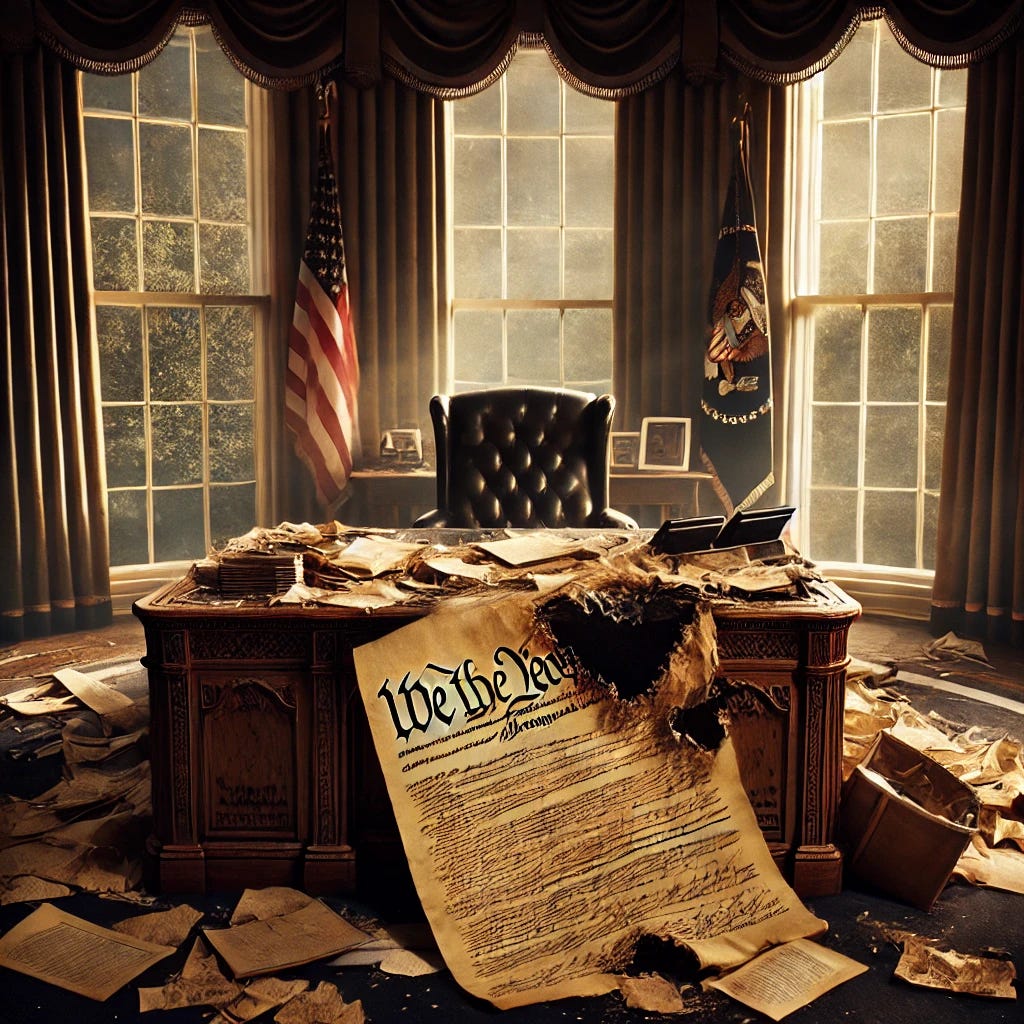✍️ When a President Refuses to Enforce the Law, He Breaks the Deal That Protects Him
Defying the Constitution erodes the trust that gives elections their force.
The U.S. Constitution isn’t a one-way street. It doesn’t hand out power without demanding accountability. One of the most basic duties it gives the president is this: “he shall take Care that the Laws be faithfully executed."
That’s not optional. It’s a constitutional obligation (Article II, Section 3).
So, what happens when a president refuses to enforce the law—knowingly and willfully? Not a difference of opinion or a mistake in judgment, but a deliberate choice to ignore or reject the law? At that point, he’s violating the very foundation of his office.
And when a president violates the Constitution, he also forfeits its protections. The shield of the law doesn’t apply to someone who steps outside it.
The difference between discretion and defiance
Presidents do have some discretion in how they enforce laws. That’s part of governing—making judgment calls based on limited resources, evolving situations, or competing priorities.
But discretion has limits. It doesn’t give the president the power to rewrite laws, ignore them outright, or invent new ones from behind the Resolute Desk in the Oval Office.
There’s a clear difference between interpreting the law in good faith and defying it for personal or political reasons.
For example, if a president openly says he’s going to ignore specific laws because they limit his control over the country—or if he starts creating sweeping policies through executive orders without Congress—he’s not enforcing the law; he’s overriding it.
That’s what happens when a president:
Uses executive orders to bypass Congress and effectively write new laws
Rewrites federal regulations without any legal authority to do so
Weaponizes the Department of Justice or the FBI to target political opponents
Uses federal agencies to censor speech by pressuring or coordinating with tech companies.
Those aren’t just power grabs. They’re blatant and flagrant abuses of power—done openly and in direct violation of the Constitution’s basic structure. They undermine the separation of powers and break the trust that gives the presidency its legitimacy.
Why this matters
If we accept that a president can pick and choose which laws to follow—or invent powers he doesn’t have—then we’re no longer living under a system of laws. We’re living under the rule of one man. That’s not a constitutional republic. That’s autocracy.
And if we allow that president to still claim the protections of the Constitution while actively violating it, we’ve gutted the rule of law entirely.
The Constitution is a contract. It gives power in exchange for responsibility. A president who refuses to "take Care that the Laws be faithfully executed" breaks that contract. He breaks the oath of office.
And when he does, he steps outside the law. He loses the right to be protected by the system he’s actively trying to dismantle.
What about the Supreme Court?
Yes, a majority of the Court has ruled that presidents have immunity from criminal prosecution for so-called “official acts.” But that ruling doesn’t make those acts constitutional—or acceptable.
Immunity granted by the court doesn’t erase a president’s responsibility to uphold the law. It may shield him from indictment, but it cannot shield him from the truth—or from judgment by the people or by Congress if it has the courage to stand up to the president.
No president—left, right, or center—is above the law. The moment we forget that is the moment we lose the republic we’re trying to defend.
Executive Overreach & Abuse of Power
A ranked guide to organizations resisting authoritarianism and defending democratic norms.
Legal Resistance for Justice
A ranked guide to legal groups challenging anti-democratic policies and abuses of power.



Thank you for subscribing me, Gary!